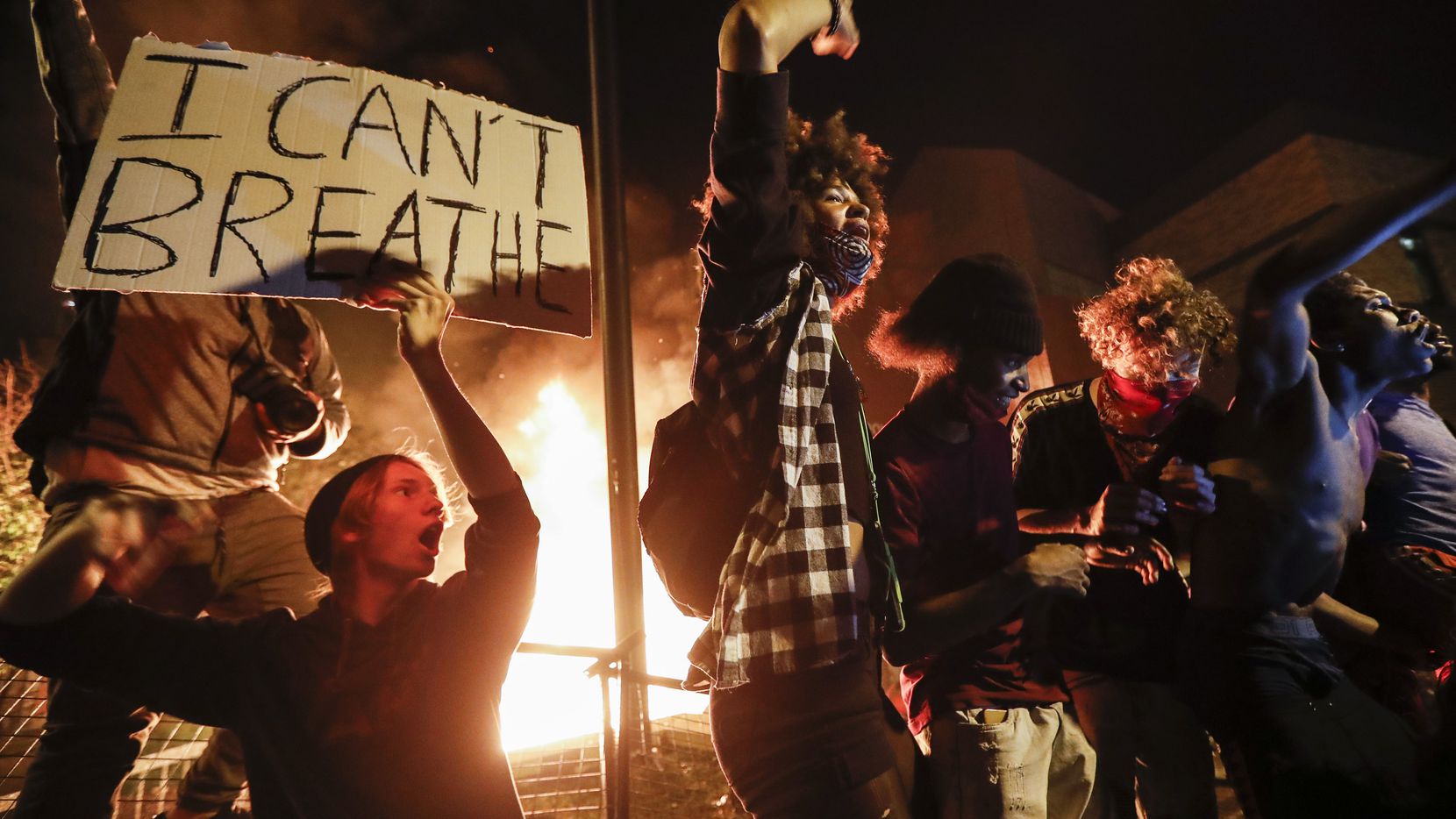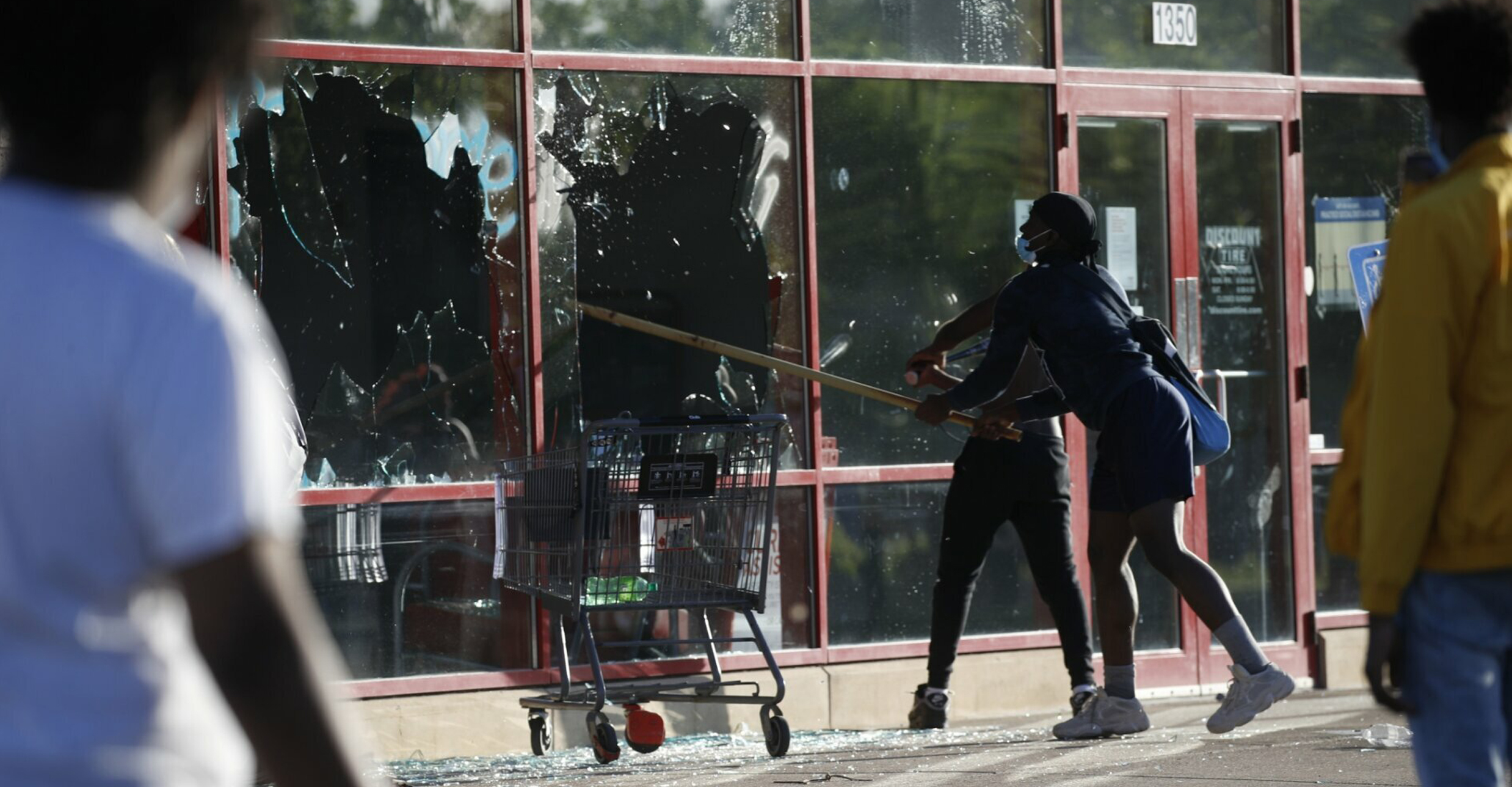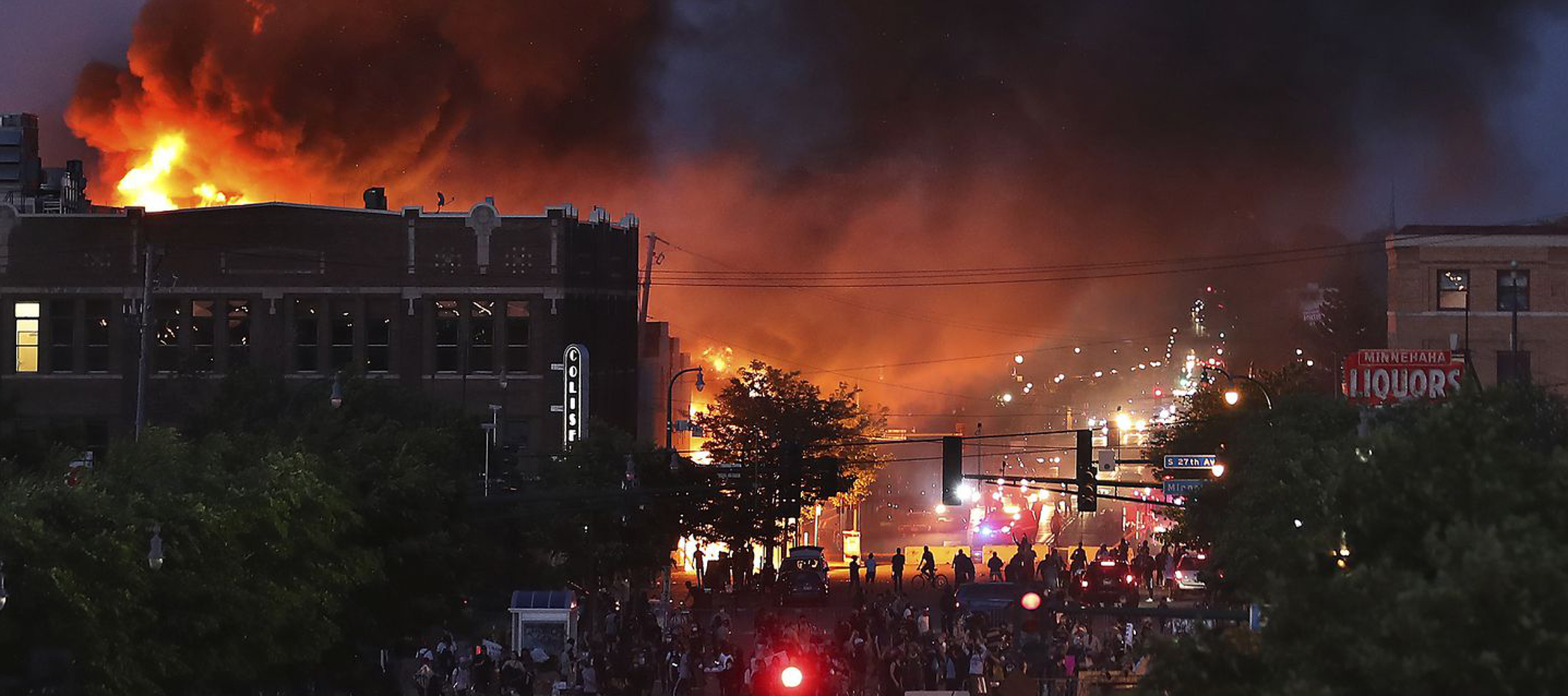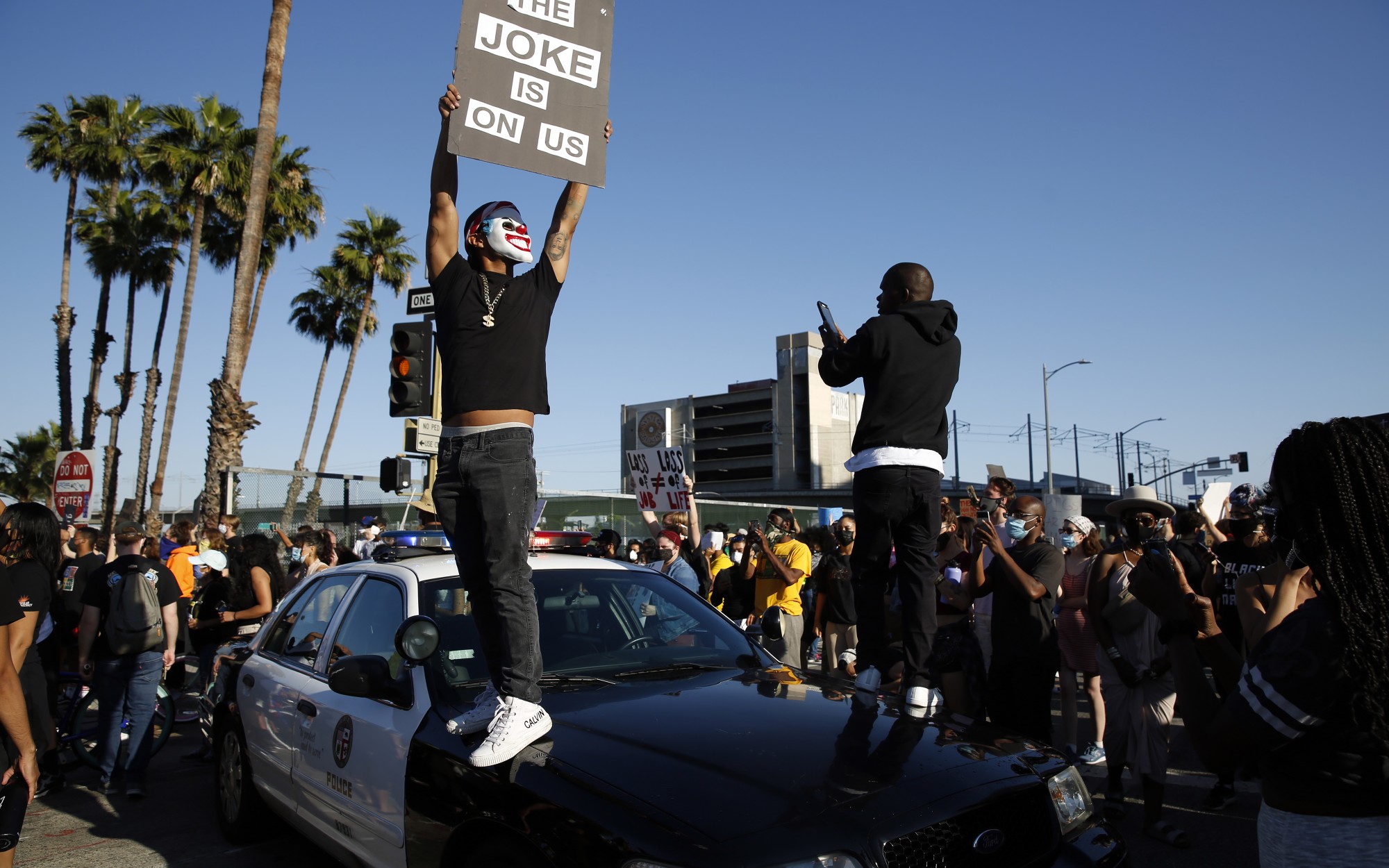
YOU HAVE PROBABLY WATCHED THE VIDEO OF POLICE OFFICERS TORTURING GEORGE FLOYD, AN AFRICAN AMERICAN. They tortured him until he died, on the street and in broad daylight, in the city of Minneapolis.
Blacks, Whites, Asian Americans and others swiftly acted after that murder. They united in a spirit of solidarity, rather rare in its depth, scope and extent in such circumstances. Their protest and the beginning of their struggle notably targeted a local police station. They torched the building. There was no casualty. The core of their struggle is not about getting rid of « a few bad apples » in the police. No, their core struggle is about the police institution itself (Hauck et al., 2020).
As Sioux philosopher John Trudell once said, when something was desecrated, be it America as a nation or the police institution, one should burn its symbol. Whether the latter is a flag or police station does not matter.
Personally, I am glad to see people burn a symbol of police brutality. It is not a violent action so long as the protesters’ intention is not to kill or injure people. Burning a symbol of police brutality like a police station is a first step to liberate oneself from institutionalized violence. It is a way to condemn murder and torture at the hands of police officers, or any form of police brutality. It sends a clear message: « If you carry on with your brutality, then we will do everything in our power to disrupt your brutal activity, including the destruction of the infrastructure necessary to carry it out ».
Therefore, it is not an emotional reaction. It is a sensible, thought out, coherent and just action.

When it comes to the so-called « looting » of stores without any intent to injure or kill anybody, who are the real looters? Looters are not people taking, in large companies’ stores of Minneapolis or elsewhere, a bunch of iPhones, the latest high-end laptops or twenty pounds of their favorite foodstuffs, after years, decades or generations of economic and social mistreatment and brutality. They are just taking back a tiny bit of what was stolen from them. The true looters are those who have been knowingly making money off scores of people living in or near poverty, depriving them of basic resources: land; decent housing; the infrastructure and equipment needed to develop an activity or live decently.
Of course, there is a big difference between taking products from stores owned by millionaires or billionaires and targeting small shops owned by lower middle class families who have no other business. The second action is anything but just and fair. In any case, if the demands of Black Lives Matter and their friends are met, both actions would either probably stop almost entirely or at least be drastically reduced.
For years, Black Lives Matter has been advocating for the abolition of police in a myriad of urban neighborhoods. The group and their friends have developed « alternative strategies to maintain security and resolve conflicts ». In order to work, these strategies must be combined with a much better « access to [meaningful] jobs, healthy food and shelter ». Black Lives Matter has been pushing for « a community’s response to social ills instead of a police response to social ills » (Bautista Duran and Simon, 2019, p.96-97; The Marshall Project, 2018).
In addition, following the murder of George Floyd, Black Lives Matter « calls for a national defunding of police. We demand investment in our communities and the resources to ensure Black people not only survive, but thrive ». This is what needs to be done, over there, and over here in Europe as well (Black Lives Matter, 2020).
So many people are afraid of losing « their » police. Overall, the police are a toxic institution from a social standpoint. They protect first and foremost the privileges and properties of some people maintained at the expense of others. So, obviously, people afraid of losing « their » police do not respect plenty of other people. They do not respect themselves either because if they did, they would first do their best to solve their problems of fear and lack of respect for themselves and others. Instead, they transfigure their problems in a more or less democratic « best of all possible worlds » according to them. They do their utmost to impose that world, and therefore their problems, on others: their dishonest and brutal law and order.

As the protests and struggle continue and may ratchet up even more, we should record, analyze and remember the different levels of brutality used by authorities in different places across the country. Each member of these authorities has got a great opportunity to solve his or her problems, respect themselves and behave as responsible adults respectful of all protesters. Now is the time to invite protesters to discuss in earnest what they need to thrive in their neighborhoods and to meet these needs. You respect them first. You do not send the police or national guard. You respect them. Or else, you authorities will once again be remembered as unhinged individuals, voluntarily addicted to brutality, hidden behind guns. Your choice between sanity and insanity.

Sources
Bautista Duran E. and Simon J., 2019. Police abolitionist discourse? Why it has been missing (and why it matters). In Miller E. J. and Rice Lave T., editors. The Cambridge handbook of policing in the United States. Cambridge University Press. 610 p.
Black Lives Matter, 2020. Sign the Petition: #DefundThePolice. 5/31/2020.
Hauck G. et al., 2020. ‘No justice, no peace’: Protesters breach Minneapolis police precinct, set fires in the wake of George Floyd’s death. USA Today. 5/30/2020.
The Marshall Project, 2018. Police Abolition: A curated collection of links. 5/30/2020.
ventdouxprod 2020, all rights reserved
